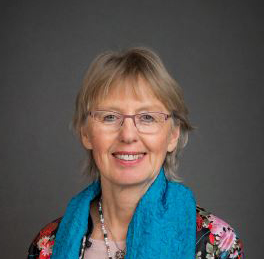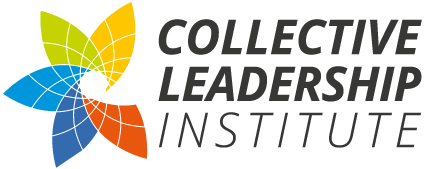Emergency narratives are important, yet new thinking and collective action works best with narratives that encourage, inspire, and show pathways to future possibilities. We need a dose of a ‘Yes We Can’ mentality to design and implement collaborative transformative change processes. Sustainability transformations are difficult and long, thus we need emotionally compelling goals and roadmaps with a clear narrative to create resonance and commitment to drive change together.

Dr. Petra Kuenkel
Global Transformation and Leadership Expert; Member of the Executive Committee, Club of Rome, Founder, Collective Leadership Institute, Fellow World Academy of Arts and Science
Dr. Petra Kuenkel is a thought-leader, renowned author, and leading strategic advisor for multi-stakeholder approaches in global sustainable transformations. As an executive committee member of the Club of Rome and founder of the Collective Leadership Institute she empowers leaders to take decisive action for our planetary future. Her academically grounded key note speeches inspire audiences worldwide with ideas for actionable pathways to a better world. Her ground-breaking publications focus on transformation literacy, stakeholder partnerships, collective stewardship and life-serving new economic architectures.
Picture ©Christian Jaeggi

Melanie Gajowski
Active Foundation Councilor; Strategic Advisor and Board Member of Various Institutions
With her C-level experience in banking and her 30 years journey in the finance industry Melanie Gajowski strategizes sustainability transformations at the interface between humans, nature and economy. Equipped with seasoned NGOs and social enterprise experience and a reverence for lived spirituality, she connects the different worlds as a bridge builder. Her passion lies in driving circular economy strategies and developing a regenerative financial economy, both of which she considers essential for responsible and life-serving economies.

Andrea Dreifke-Pieper
Director International Economy Unit, Global Markets Practice, WWF International/WWF Germany
Andrea Dreifke-Pieper is Director of WWF’s International Economy Unit. She also acts a member of the Leadership Team of WWF International`s Markets Practice. Prior to this, she led WWF Germany’s work on business engagement and markets transformation. Before joining WWF, Andrea worked for 20 years in the management and strategy departments of both consulting firms and corporate groups – with a focus on sustainability, transformation and change processes. She has a university degree in forestry and a complementary degree in sustainability management.

How can narratives of future possibilities become powerful enough to get us active, collaborate, and organize around transformative change?

Dominic Stucker
Managing Partner at the Collective Leadership Institute (CLI)
Dominic is an action-oriented collaborator who convenes diverse teams to address pressing sustainability challenges. He is a lead faculty member for educational programs on cross-sector co-operation and facilitates stakeholder dialogues. With more than 20 years combined experience as a programs manager, consultant, and researcher, he works with actors across Africa, Asia, and Latin America in guiding systems toward greater, results-oriented collaboration.
Dominic has an academic background in environmental security, governance, and education, and has published with Earthscan/Routledge, MIT Press, and the Mountain Research and Development Journal.

Dr. Nimai Bera
SAIME Project Manager with Nature Environment and Wildlife Society (NEWS), Kolkata, India
Dr. Nimai Bera studied environmental science and has more than 7 years of research experience. As SAIME Project Manager with NEWS in West Bengal, Dr. Bera contributes his expertise in flora, natural resource management, and stakeholder engagement. He has also worked at the Indian Institute of Bio–Social Research and Development and the ICAR-Central Institute of Freshwater Aquaculture with a focus on livelihood development and fish-based integrated farming in the Sundarbans. He has published multiple research papers, book chapters, and scientific reports which document his work.
M. Sabrin Ahmed Roty
Communications Officer, Bangladesh Environment and Development Society (BEDS), Khulna, Bangladesh
M. Sabrin Ahmed Roty is an agriculturist with educational and research experience in agricultural extension and rural development. She holds a Bachelor of Science (BSc) Honors in Agriculture and a Master of Science (MSc) in AgriculturalExtension and Rural Development from Khulna University. She has been working with BEDS since 2019.

Tsetsgee Gavaa
Partnership for Organic Agriculture (POAg) Project Manager, ADRA Mongolia
Tsetsgee Gavaa has 20 years’ working experience in international NGOs as a project coordinator and manager. She has led 9 major projects in Mongolia in the areas of community development, strengthening capacity and networking of civil society, citizens engagement and advocacy, NGO capacity building, citizens engagement in the government budget and procurement process, public-private partnerships (PPPs), and rural development through the strengthening of cooperatives, development of organic agriculture, and establishment of a participatory guarantee system (PGS).
Undrakh Banzragch
Multi-Actor Partnership and Participatory Guarantee System Officer, Partnership for Organic Agriculture (POAg), ADRA Mongolia
Undrakh Banzragch has been working closely with organic agriculture stakeholders in Mongolia for over 3 years in her role as Multi-Actor Partnership and Participatory Guarantee System Officer. She is an integral ADRA team member in the Partnership for Organic Agriculture project. Undrakh holds a Masters in Public Policy (MPP) as well as a Master of Laws (LLM).


Stories on how we can envision and move toward a thriving future invigorate our capability to collectively shape a future worth living in. Narratives can inspire us to take responsibility in protecting human and planetary wellbeing, can spring us into action to safeguard life support systems, and can help us realize our ideas for operating within the planetary boundaries.
Further, narratives can inspire ingenuity and care for social and ecological systems vitality. Transformation Literacy fosters the change in the mental models, mind-sets, and stories enabling us to understand how our planet works in interdependency, thus encouraging us to care for future generations and to take responsibility to drive transformative change today.
“We humans organize around stories. Whoever owns a society’s defining story, owns its future.”
David Korten, author of Change the Story, Change the Future
Powerful narratives
- connect with an image of a future that we want to become part of
- help us experience the possibility of actually achieving change, even if in small steps
- make us realize that our contribution counts – no matter how small or big.
Enlivening narratives might take different forms and formats. They have various expressions – from scientific literature to the arts. They need to be anchored in the world’s historic and cultural differences. They may also require adaptation and translation into the “language” of different societal groups, so that they create resonance for transformative change and become an inspiration to plan and act differently.
In this conference session, we will explore, when narratives of future possibilities become powerful enough to get us active, collaborate and organize around transformative change.
